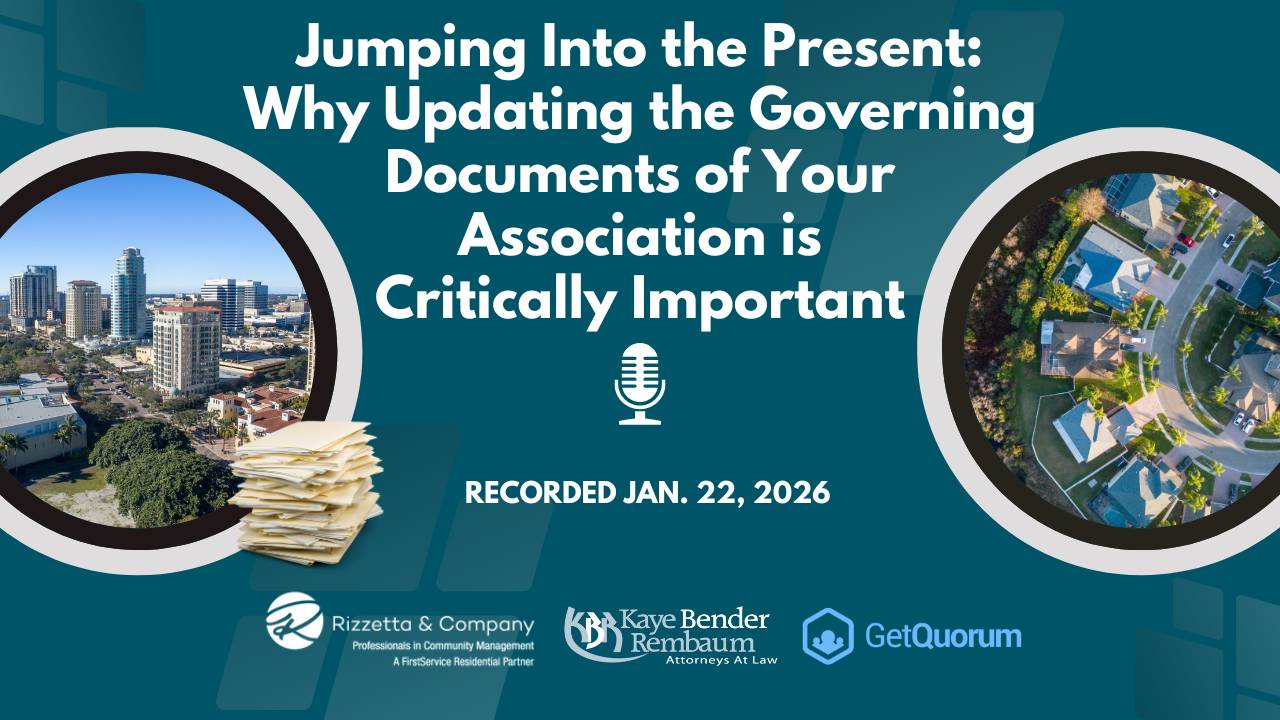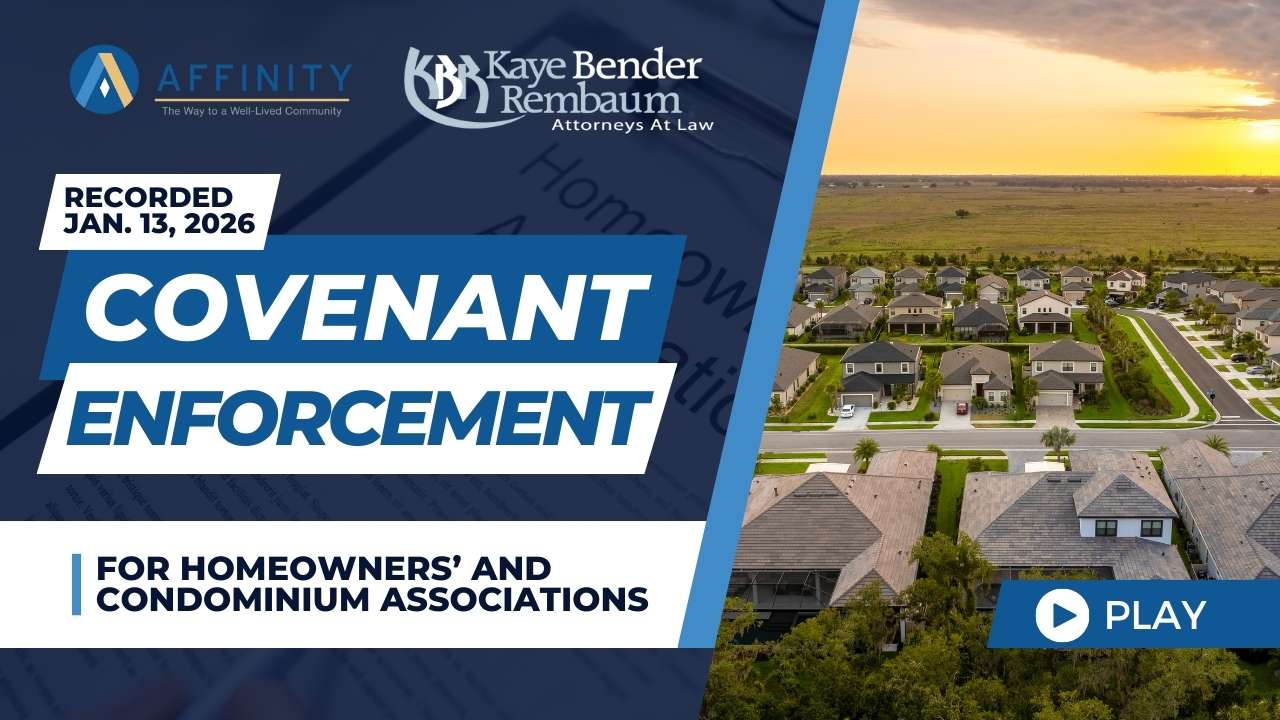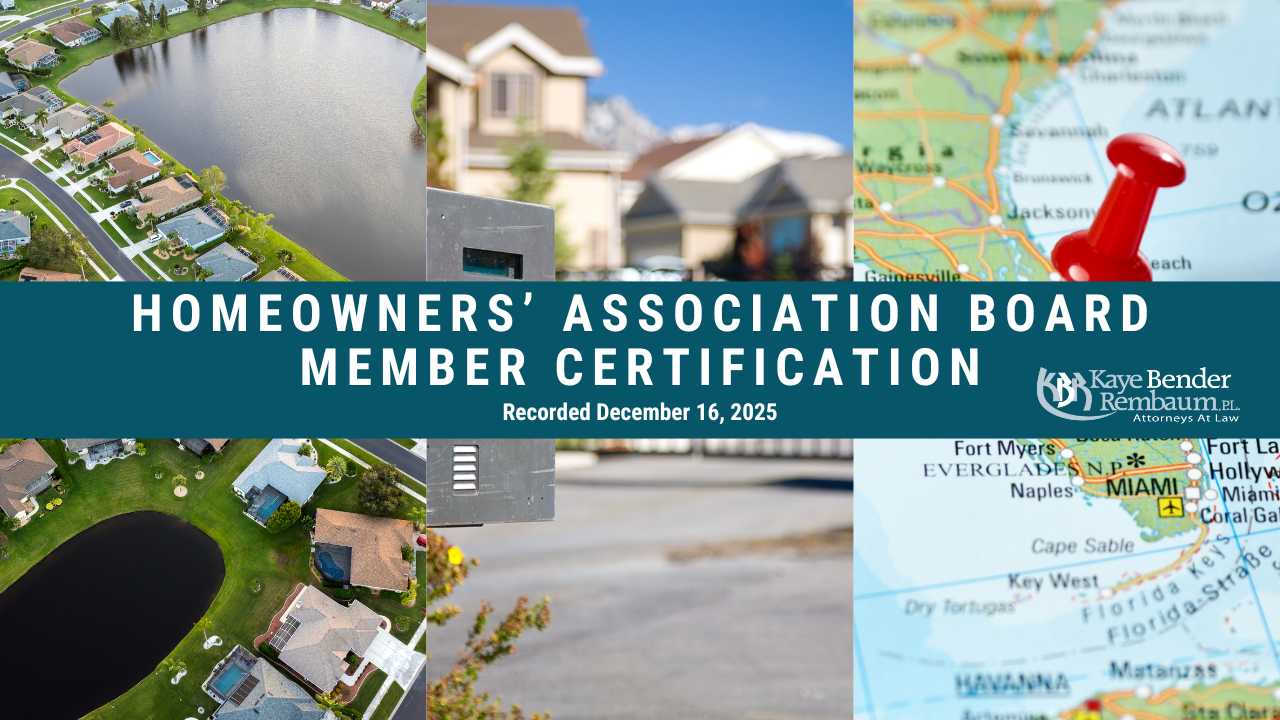Rembaum’s Association Roundup | Jeffrey A. Rembaum, Esq., BCS | Visit HERE
Homeowners’ associations (HOAs) are a defining feature of a great many Florida neighborhoods. Designed to maintain property values, create cohesive communities, and manage shared amenities, HOAs promise an organized and well-maintained living environment. Additionally, the local governmental water management districts require the community’s developers to create an entity to manage the surface water drainage system over the large tracts of land upon which the homes will be built. Those entities are created and become what we know as the homeowners’ association.
Purchasers looking to buy in an HOA often drive through the community and are attracted to the overall appearance of the well-maintained homes, manicured lawns, maintained roads, common amenities, and so much more. Yet, a curious phenomenon persists: some people willingly buy homes within HOAs only to become vocal critics or active challengers of the very organizations they once accepted. For instance, they receive a letter to clean the driveway or roof and react angrily. Or, they are furious when the HOA tells them they cannot park their boat in the neighborhood. Why does this negative reaction happen? Why educated and smart, prospective purchasers fail to read the covenants and rules as part of their purchase process can boggle the mind.
For many, buying a home is the largest purchase of their lifetime; yet some do so without even reading the covenants and rules. Despite initial enthusiasm, some residents later find themselves at odds with their HOA. A few even want to find a way to disband and fully terminate their HOA. To those people it must be asked, why did you even move into an HOA in the first place?
Read the full article HERE












